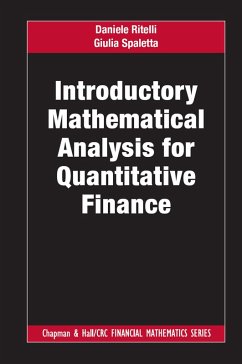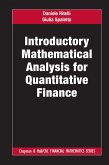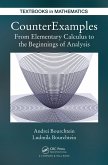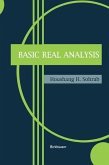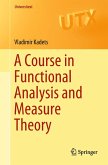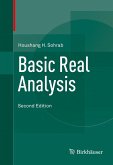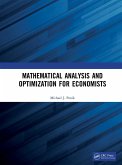Dieser Download kann aus rechtlichen Gründen nur mit Rechnungsadresse in A, B, BG, CY, CZ, D, DK, EW, E, FIN, F, GR, HR, H, IRL, I, LT, L, LR, M, NL, PL, P, R, S, SLO, SK ausgeliefert werden.
-Vincenzo Vespri, Università degli Studi di Firenze
"This book will be an invaluable support to those approaching Quantitative Finance from a non-quantitative undergraduate path, such as Economics students. It allows students to have a rigorous focus on the main subjects commonly used in applied sciences and particularly in Quantitative Finance."
-Silvia Romagnoli, Università di Bologna
Introductory Mathematical Analysis for Quantitative Finance is one of those rare textbooks designed to introduce upper undergraduates or beginning graduate students in Economics and Management to the indispensable analytic tools needed for approaching the technicalities of Mathematical Finance. The text assumes a minimum level of knowledge in Advanced Calculus and Linear Algebra and leads the reader to the first notions of Measure Theory and Fourier transform to arrive at the solution of the Black Scholes equation. The book is very well written and is perfect for students studying Economics and Management.
-Vincenzo Vespri, Università degli Studi di Firenze
"This book will be an invaluable support to those approaching Quantitative Finance from a non-quantitative undergraduate path, such as Economics students. It allows students to have a rigorous focus on the main subjects commonly used in applied sciences and particularly in Quantitative Finance."
-Silvia Romagnoli, Università di Bologna

